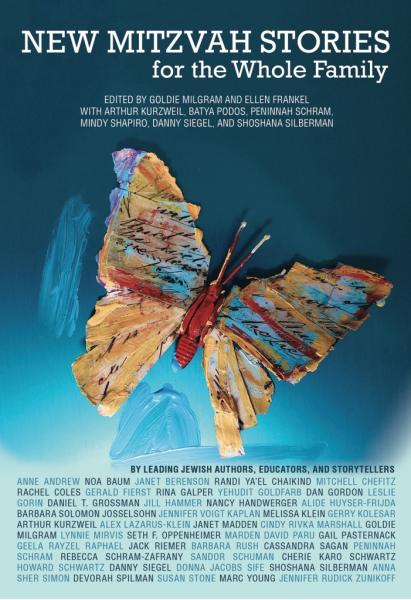 Happy Passover! Here's a joyful free story for your Shabbat Seder or family time by Noa Baum from our newest book in our award-winning Mitzvah Stories series.
Happy Passover! Here's a joyful free story for your Shabbat Seder or family time by Noa Baum from our newest book in our award-winning Mitzvah Stories series.
Also important and joyful is the push from several groups to advance world-wide understanding and appreciation of Jewish ritual and practice through including non-Jews at our seder table, not just beloveds of significant others and friends. That brings to mind in our New Mitzvah Stories for the Whole Family, another free story I've posted: "The Stranger at the Passover Table" by Barbara Solomon Josselsohn; a powerful story and discussion guide to inspire reflection, discussion and action. Moment Magazine #inviteanon-jewtoyourseder2015 has a source sheet out.
Some great new resources out there include Seder with Kids, a free downloadable Haggadah app called The Wandering Is Over, and "With Outstretched Arms" from Moving Traditionswhich helps to bring the voices of teens and personal history into the seder.
Why am I emphasizing happiness? Jewish festivals are deliberately joyful practices focused on raising our resiliance, being together, feeling listened to and supported as we enact each aspect of the seder. As times change, some elements of our seders change. Since Arthur Waskow's creation of the Freedom Seder, attention to difficult societal issues world-wide became a new approach to the seder. Now that antiSemitism is returning and the world situation is increasingly violent, perhaps a return to the respite and awareness of life process that a celebratory Passover seder brings is in order. Here's some science about that from an article by Peninnah Schram: "Storytelling and Spirituality: Sacred and Shared Between the Generations":
Drs. Marshall and Sara Duke...found that children with learning disabilities who knew about their family’s history were more resilient when they encountered challenges and dealt with stress. According to Dr. M. Duke, 'The answers have to do with a child’s sense of being part of a larger family.' In other words, children who knew their family narrative “know they belong to something bigger than themselves…Talking also means telling a positive story about yourselves…The bottom line: If you want a happier family, create, refine and retell the story of your family’s positive moments and your ability to bounce back from the difficult ones.
If we apply this paradigm to the Jewish people and the telling of our stories using both formal and informal ways, I think it works beautifully. Our Torah and our entire history contain stories about how we did well and succeeded and also how we had our problems, attacks and defeats. Yet, we bounced back – we survived - and continued on as a united community of Jews all around the world always choosing life. When we know our group history, when we understand that we belong to a Jewish People, that there is a force beyond ourselves – and yet within each of us – that we are not alone in the world, we can create group continuity and continue to live and tell our stories. And we must tell our stories in order to live a life filled with the values of empathy and compassion leading to mitzvot!
Thank you Peninnah for revealing why we take time to be together and fully experience the story and be able to legitimately let go of our self-criticisms as a people and individuals and to truly celebrate the freedoms we have. There's plenty of room to work on ourselves the rest of the year.
We live in times with no shortage of depressing narratives that we necessarily and legitimately receive in our emails during weekdays that certain can and do power social action and justice--about the condition of peoples and the environment. If your family is dedicated to these issues already, Passover is a good time to give yourself some time off to focus on Jewish and personal stories. On the other hand, if the Passover themes call you to focus on oppressed and distressed peoples and segements of society, here are some quality supplements to consider:
Mazon: Ask the Fifth Question: Why do we tolerate leaders who spend more time belittling children than figuring out how to feed them?
The Bard College Haggadah supplement that comes out of their students' work with local prisoners titled: Still Behind Bars: Education and the Meaning of Freedom.
For those who don't mind the substantial absence of empathy for Israeli and Jewish lives, there's the Rabbis for Human Rights Haggadah: Who Sits with Us at the Seder
A consortium of caring Jewish groups created the Refugee Seder Supplement.
 At www.ReclaimingJudaism.org we have many more free resources for Passover on our main page and menus. On behalf of our board and over 200 volunteers blessings for a zissen (sweet) Pesach (Passover)!
At www.ReclaimingJudaism.org we have many more free resources for Passover on our main page and menus. On behalf of our board and over 200 volunteers blessings for a zissen (sweet) Pesach (Passover)!
Rabbi Goldie Milgram, Executive Director, Editor-in-Chief